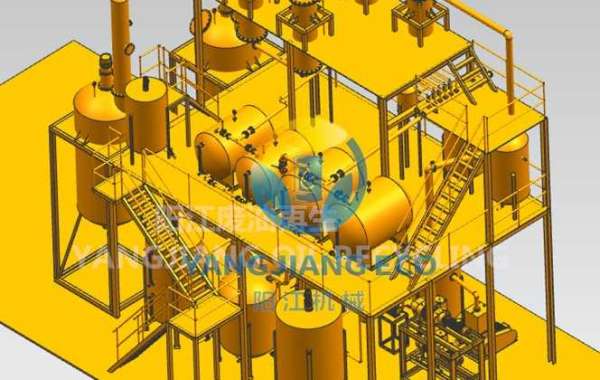Base oil distillation machines play a crucial role in refining crude oil into high-quality base oils, which are the primary components of lubricants. The performance of engine oils, hydraulic fluids, and industrial lubricants heavily depends on the purity and viscosity of the base oil. Advanced distillation technology ensures the removal of impurities, sulfur compounds, and unstable hydrocarbons, resulting in a more stable and efficient lubricant.
The Role of Distillation in Lubricant Quality
The distillation process separates crude oil into different fractions based on boiling points. In base oil production, vacuum distillation is commonly used to isolate heavier hydrocarbons that form Group I, II, or III base oils. Modern distillation machines employ precise temperature and pressure controls to minimize thermal degradation, ensuring the base oil retains its desirable properties.
Enhancing Oxidation Stability
One of the key benefits of advanced base oil distillation is improved oxidation stability. Impurities and unsaturated hydrocarbons can accelerate oxidation, leading to sludge formation and viscosity breakdown. By removing these contaminants, distillation machines produce base oils that resist degradation, extending lubricant life and reducing engine deposits.
Impact on Additive Compatibility
High-purity base oils have better additive solubility, allowing lubricant formulators to optimize performance packages. Distillation machines that produce Group II and III base oils enable the creation of low-SAPS (Sulfated Ash, Phosphorus, Sulfur) lubricants, which are essential for modern emission-compliant engines.
Conclusion
Base oil distillation machines are critical in ensuring lubricant performance, longevity, and environmental compliance. By refining crude oil into high-quality base stocks, these machines enable the production of superior engine oils and industrial lubricants that meet today’s demanding standards.














